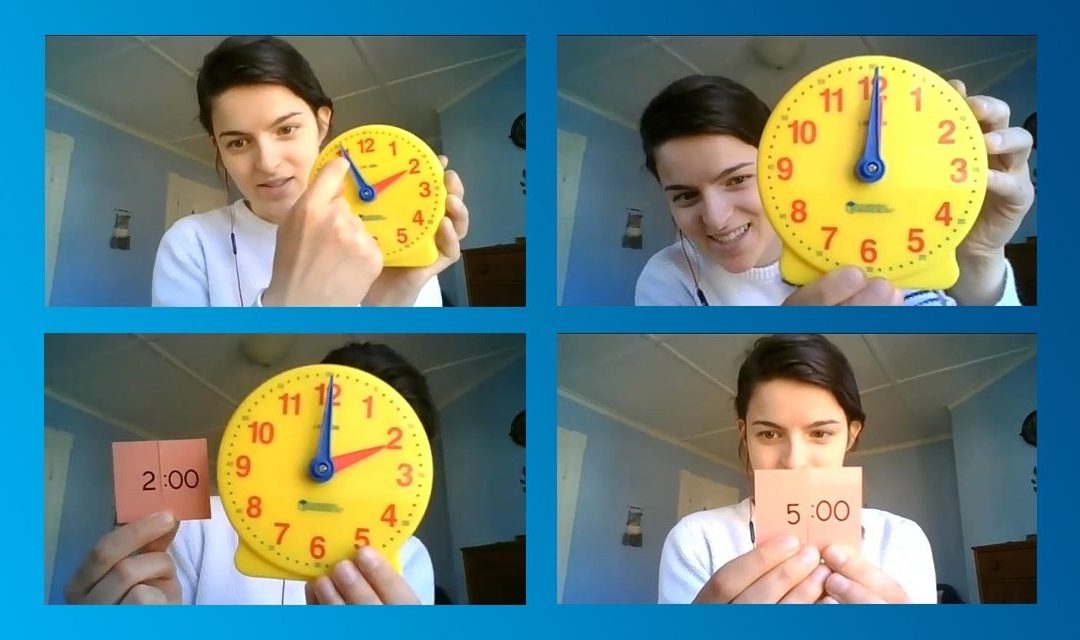This article originally appears on The Bell: News and Stories from Gordon College
In Hudsonville, Michigan, 11-year-old Gavin Keenan is figuring out how to split a cookie recipe in half, to practice dividing fractions and to accommodate the gluten free people in his family. The promise of baked cookies is well worth the math involved. With every ingredient from baking soda to chocolate chips, Gavin and his older sister Paige Keenan ’20 return to the kitchen table to calculate. Schools may be closed, but Gavin’s sister is a stellar substitute fifth-grade teacher.
Like Paige, well over 50 Gordon education majors have stepped in to help overwhelmed parents homeschool their children and help lead-teachers transition their classes to an online format during the pandemic. Together, these Gordon students are providing educational support to hundreds of young students across the United States, and even in the Bahamas.
The Jack of All . . . Grades
Rebekah Dostie ’20 is another one of these homeschool heroes. From Connecticut, she teaches six students remotely, from first to seventh grade, which adds up to about 20 one-on-one sessions per week. In the same day, she might teach basic addition and middle school chemistry. She says, “I’m having to relearn some of the things that I learned in middle school to provide the best explanations I can for my students.” In addition to chemistry, she says she’s had to brush up on the life of Caesar Augustus: “He had three wives, which was interesting conversation to have with a 12-year-old boy.”
Bilingual Homeschool Teacher Reaching English Language Learners
Meanwhile, in New Jersey, Spencer Hess ’20 is homeschooling his six-year-old niece and two second-grade English Languages Learners (ELLs), who he met during his ESL practicum at a Title 1 school in Lawrence, MA. Being bilingual in Spanish and English, there hasn’t been a language barrier for Hess to break through, but there has been a technological one. Hess’ ELL students are at a disadvantage because they don’t have the technology at home to adapt to a remote learning environment. He explains, “I can’t just hand a student a book or print out a worksheet. If a student, for whatever reason, cannot access the Zoom meeting, they miss the lesson for the day.”
A Silver Lining and a Second Chance
While these COVID-19 school closures have felt like a major setback to many students, families and teachers, they’ve also helped educators identify students who are flying under the radar and are in desperate need of specialized support.
This is true for Genevieve, a second-grader who Lauren Demers ’20 homeschools every morning and afternoon. Over the last five weeks, it’s become clear to Demers that Genevieve is behind in school and likely has multiple undiagnosed learning disorders. “After this homeschooling process, her mom and I have had lots of conversations,” says Demers. “I think [Genevieve’s mom] realizes that this school may not be a good permanent fit for her daughter. She thinks that online learning or more one-on-one teaching really benefits Genevieve.”
Even in the short time they’ve had together, Demers has observed that “Genevieve has grown in her ability to verbally discuss what she’s thinking.” And although Genevieve still has a long way to go in terms of reading and verbal fluency, thanks to Demers she has both an expanded vocabulary and now reads stories with some expression and excitement. If the school closures hadn’t happened, says Demers, it’s very likely that Genevieve would have gone another year or two without getting the support she needs to be successful in school.
In being able to advocate for a more suitable learning environment for Genevieve, Demers has found the closure she was looking for, after her senior year at Gordon and student teaching practicum ended so abruptly. She explains, “It was a reassurance. God completely had this laid out to happen this way. Even though there was so much sadness in having to start from scratch, as student teachers, I think God really had a purpose for the students we were going to encounter moving forward. God still had work for me to do and so much for me to learn.”
Like Demers, Dostie, Hess, Keenan and many other graduating education majors didn’t plan on spending their last semester of college homeschooling a motley crew of students over Zoom (or in their own kitchens). And although they didn’t see it coming—and had to lose something precious in the process—they embraced plan B and became better teachers. They used their knowledge and expertise to care for parents, educators and students across the world in a desperate situation.
Many education majors have been able to continue teaching in real schools remotely, and graduating seniors are still on track to completing the professional requirements needed for licensure. Keenan, who finished her practicum at North Beverly Elementary remotely in addition to homeschooling two students says, “As a senior, this has been a really great opportunity to have closure. I still had something to contribute. Now, I can say goodbye to my students and move on to the next chapter of my life knowing that I’ve done that well.”

